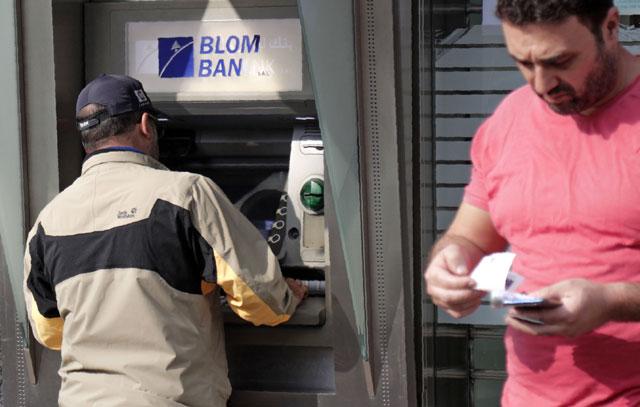You are here
Lebanon backs key importers amid fears of dollar shortage
By AFP - Oct 01,2019 - Last updated at Oct 01,2019
BEIRUT — Lebanon’s central bank is to facilitate access to dollars for importers of petroleum products, wheat and medicine, state media said on Tuesday, following fears of a dollar shortage and possible currency devaluation.
Last week, local media said banks and money exchange shops were rationing dollar sales in the country, where Lebanese pounds and US dollars are used interchangeably in everyday transactions.
Petrol station owners threatened to strike over a lack of dollars at a fixed exchange rate to pay for imports, while flour producers complained over much higher rates from money changers.
The central bank on Monday adopted the measure to allow certain importers to obtain dollars at the bank rate to pay for key imports.
“Banks that issue letters of credit for the importation of petroleum products [petrol, fuel oil and gas], wheat and medicine will be able to ask the Banque du Liban to ensure the value of such credits in US dollars,” read the decision published by the National News Agency.
The mechanism requires that a “special account” be opened at the central bank, and at least 15 per cent of the value of the credit deposited in it in US dollars, as well as the full value in Lebanese pounds, it said.
The central bank will take 0.5 per cent from each transaction.
Lebanon has had a fixed exchange rate of around 1,500 Lebanese pounds to the dollar in place since 1997.
Central bank Governor Riad Salameh last week denied that the country was facing a currency reserve crisis, but it has become very difficult to withdraw dollars from ATMs in Beirut.
Economic growth in Lebanon has plummeted in the wake of repeated political deadlocks in recent years, compounded by eight years of war in neighbouring Syria.
Lebanon’s public debt stands at around $86 billion — more than 150 per cent of gross domestic product — according to the finance ministry.
Eighty per cent of that debt is owed to Lebanon’s central bank and local banks.
In July, parliament passed an austerity budget as part of conditions to unlock $11 billion in aid pledged at a conference in Paris last year.
Related Articles
BEIRUT — Several petrol stations in protest-hit Lebanon stopped services on Saturday, as reserves ran dry due to a shortage of US dollars to
BEIRUT — Lebanon hiked fuel prices by more than 30 per cent Tuesday as it reduced subsidies that have eaten away at the central bank's forei
BEIRUT — Petrol station owners in Lebanon on Friday suspended a strike and said they reached a deal with the government allowing them to pay

















